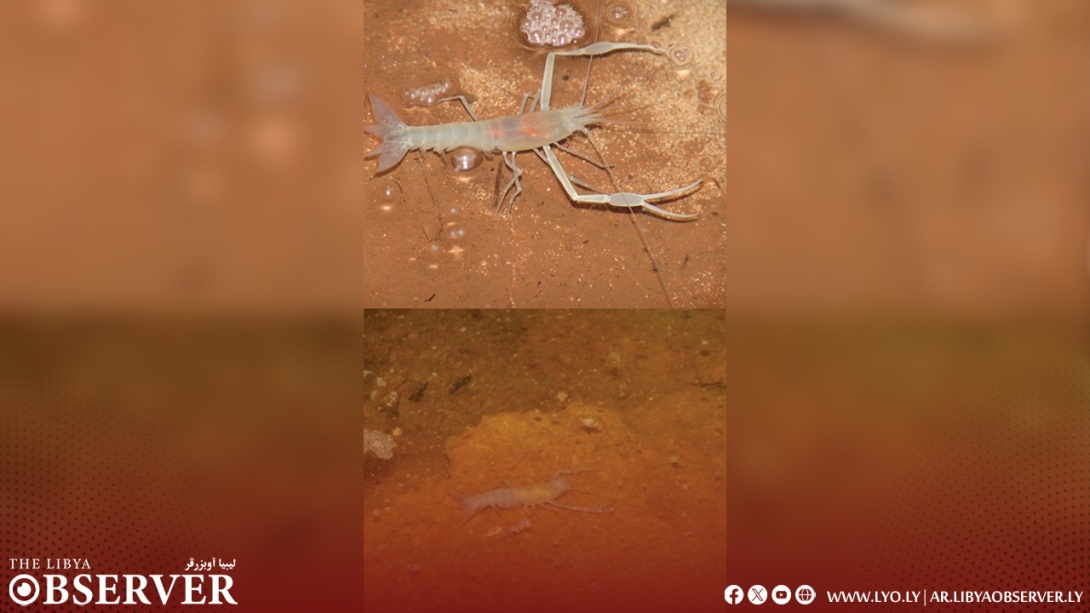In a significant scientific discovery, researchers from the Earth Sciences and Zoology Departments at the Faculty of Science, University of Benghazi, in collaboration with Italy’s Epilio Center, have confirmed the existence of the blind cave shrimp (Typhlocaris lethaea) in underground waters at Leethy Cave in Al- Kuwayfiyah area, east of Benghazi. This comes more than a century after it was first recorded in 1920.
The study, published in the journal Subterranean Biology, is the first of its kind in Libya. It revealed that the range of this endangered species has expanded by 9 kilometers east of Benghazi.
Field surveys conducted in 2023 and 2024 confirmed the presence of the blind shrimp in two caves — Al-Khadim and Al-Kuwayfiyah. The samples were found in underground lakes characterized by complete darkness, with water conditions including an average temperature of 22°C, a pH of 7.67, and salinity of 4.72 parts per thousand.
Two samples were used for further analysis. The results indicated that the species is more widespread than previously thought, highlighting potential hydrological connections within the karst system, according to the study.
The study also noted that the discovery points to hidden biodiversity in Al-Khadim Cave. Given the species’ data-deficient status with the International Union for Conservation of Nature (IUCN), the findings underscore the need for increased environmental conservation efforts to protect these fragile ecosystems from human impact and ensure the preservation of Libya’s unique underground biodiversity.







